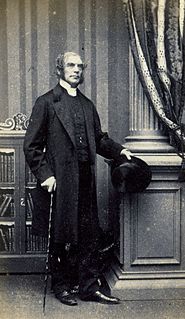A Quote by Noam Chomsky
I hope that a move toward clemency with Judge Afiuni would be a step towards the importance of maintaining a properly functioning justice system.
Quote Topics
Related Quotes
In Scotland over many years we have cultivated through our justice system what I hope can be described as a 'culture of compassion.' On the other hand, there still exists in many parts of the U.S., if not nationally, an attitude towards the concept of justice which can only be described as a 'culture of vengeance.'
My personal attitude toward atheists is the same attitude that I have toward Christians, and would be governed by a very orthodox text: "By their fruits shall ye know them." I wouldn't judge a man by the presuppositions of his life, but only by the fruits of his life. And the fruits - the relevant fruits - are, I'd say, a sense of charity, a sense of proportion, a sense of justice. And whether the man is an atheist or a Christian, I would judge him by his fruits, and I have therefore many agnostic friends.
We must move from ... the primacy of technology toward considerations of social justice and equity, from the dictates of organizational convenience toward the aspirations ofself realization and learning, from authoritarianism and dogmatism toward more participation, from uniformity and centralization toward diversity and pluralism, from the concept of work as hard and unavoidable, from life as nasty, brutish, and short toward work as purpose and self~fulfillment, a recognition of leisure as a valid activity in itself.
I think the Ronald Reagan tax reform proposals are a step toward distributive justice. They redistribute the tax burden more equitably and more progressively among individuals and call upon business to carry a somewhat larger proportion of the total tax load. Both of these are steps toward equity and distributive justice.
The first step toward the management of disease was replacement of demon theories and humours theories by the germ theory. That very step, the beginning of hope, in itself dashed all hopes of magical solutions. It told workers that progress would be made stepwise, at great effort, and that a persistent, unremitting care would have to be paid to a discipline of cleanliness. So it is with software engineering today.
In social life, in the family government, in the Church, and in the State this is an acknowledged and invariable law. The debtor would be incapable of appreciating the clemency which cancelled the debt, so long as he denied either the existence or the justice of the claim. Unconscious of the obligation, he would be insensible to the grace that remitted it.






































